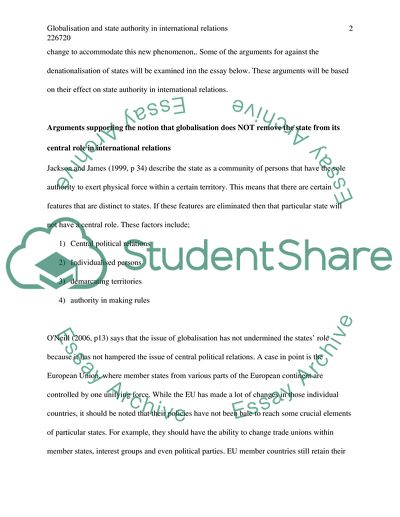Cite this document
(Globalisation and State Authority in International Relations Literature review, n.d.)
Globalisation and State Authority in International Relations Literature review. Retrieved from https://studentshare.org/politics/1546519-4is-the-process-of-globalization-undermining-the-authority-of-the-state-and-removing-it-from-its-central-role-in-international-relations
Globalisation and State Authority in International Relations Literature review. Retrieved from https://studentshare.org/politics/1546519-4is-the-process-of-globalization-undermining-the-authority-of-the-state-and-removing-it-from-its-central-role-in-international-relations
(Globalisation and State Authority in International Relations Literature Review)
Globalisation and State Authority in International Relations Literature Review. https://studentshare.org/politics/1546519-4is-the-process-of-globalization-undermining-the-authority-of-the-state-and-removing-it-from-its-central-role-in-international-relations.
Globalisation and State Authority in International Relations Literature Review. https://studentshare.org/politics/1546519-4is-the-process-of-globalization-undermining-the-authority-of-the-state-and-removing-it-from-its-central-role-in-international-relations.
“Globalisation and State Authority in International Relations Literature Review”. https://studentshare.org/politics/1546519-4is-the-process-of-globalization-undermining-the-authority-of-the-state-and-removing-it-from-its-central-role-in-international-relations.


